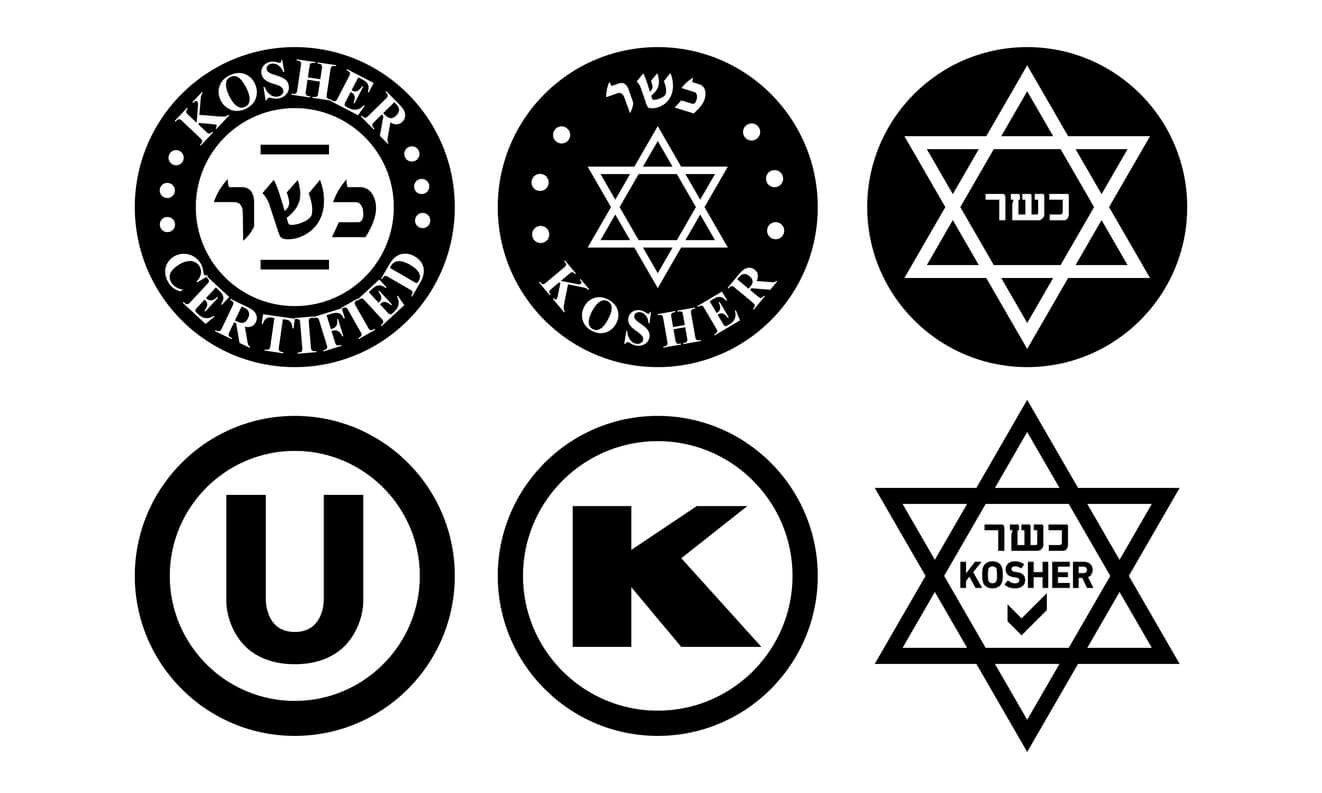Something’s not kosher as questions arise over products from India
Experts say fraudulent kosher certification is a recurring problem globally

While these kosher symbols are legitimate, consumers are warned to keep an eye out for other symbols being used to fraudulently certify food as kosher. Photo by Calin Hanga/iStock
Consumers are being warned of possibly phony kosher symbols on food from India and other parts of Asia, but it’s unclear whether the companies issuing them are bogus or not.
A May 10 post on Kashrut.com, a website dedicated to warnings and recalls on kosher food, that was updated May 15 warned of eight symbols being put out “by companies, many in Asia particularly India that sell ‘certification’ services.” The post said: “No recognized rabbinical certification is behind these certifications” and that consumers “should never rely on a symbol, but verify that it is a reliable agency.”
The site is run by Arlene Mathes-Scharf, a kosher food specialist. An advisory on the site advises that information is from secondhand sources and the administrator “cannot take responsibility for the accuracy of the information.”
Mathes-Scharf said someone sent her a picture of a box of granola bars available on Amazon that bore one of the logos.
“I looked up the company and lots of people are selling this stuff and everything says kosher,” she said. “I found the company, I tried to contact them and ask who was certifying and nobody responded.”
Many of the allegedly bogus symbols are generic and do not feature a company name. One of them appeared to be a copycat of the logo used by Kof-K, one of the largest kosher accreditation organizations in the United States.
One of the few symbols with an easily identifiable organization touted itself as certified by KCI Kosher, a company whose website says it provides certification for both kosher and halal foods as well as certifying that food is vegan.
The website does not identify a rabbi responsible for the inspection and certification process, which is uncommon, said Mathes-Scharf.
KCI Kosher did not respond to an email requesting comment.
The issue of fraudulent kosher certification has become a recurring one, particularly in India, said Rabbi Sholem Fishbane, the kashrus administrator for the Chicago Rabbinical Council and executive director of the Association of Kashrus Organizations.
“It’s really a global issue,” he said. “I don’t necessarily think it’s limited to India, although, if you would tell me there’s another bogus kosher agency, which country do you think it’s coming from? I would say India first. So it does seek to have a proportionally high percentage.”
Fishbane said he was familiar with the Kashrut.com post but could not say for certain whether any of the symbols are credible or not. However, he said he had been in contact with at least one organization in India that purported to do kosher certification and erroneously listed itself as being associated with the CRC and AKO. Fishbane said despite repeated requests, the company has not contacted him back or removed the reference from their website.
In the past, Kashrut.com has warned of other foods, including a line of rices and pilafs, that erroneously claimed to have kosher certification.
In an email to the Forward, Rabbi Menachem Genack, chief executive officer and rabbinic administrator of OU Kosher, said that it’s impossible to trademark the word “kosher” and it’s up to consumers to verify that the organization behind a certification is legitimate.
“If someone is not familiar with a symbol on a food item, they should do their due diligence and be careful to make sure it’s reliable,” he said.
Fishbane noted that globally, there’s an estimated 1,500 kosher agencies, only around 250 of which meet the CRC’s requirements for certification, so managing to keep track of all those that don’t go through the rigorous standards is impossible.
While India has a Jewish population of only roughly 5,000, Fishbane said the country has become a major exporter of cheap goods, including food items. The CRC has tried to make inroads into India, but it’s challenging due to travel costs. That has resulted in some companies turning to the less-than-reputable certification organizations to certify their food.
Due to the complexities of dealing with foreign legal systems, Fishbane said it’s unclear if anything can ever be done to stamp out the problem.
“Every country has its own set of laws and lawyers,” he said, adding he doesn’t know if a long term solution exists. However, in the short term, the best option is to “just educate people, to only utilize kosher symbols with legitimacy and authenticity.”















